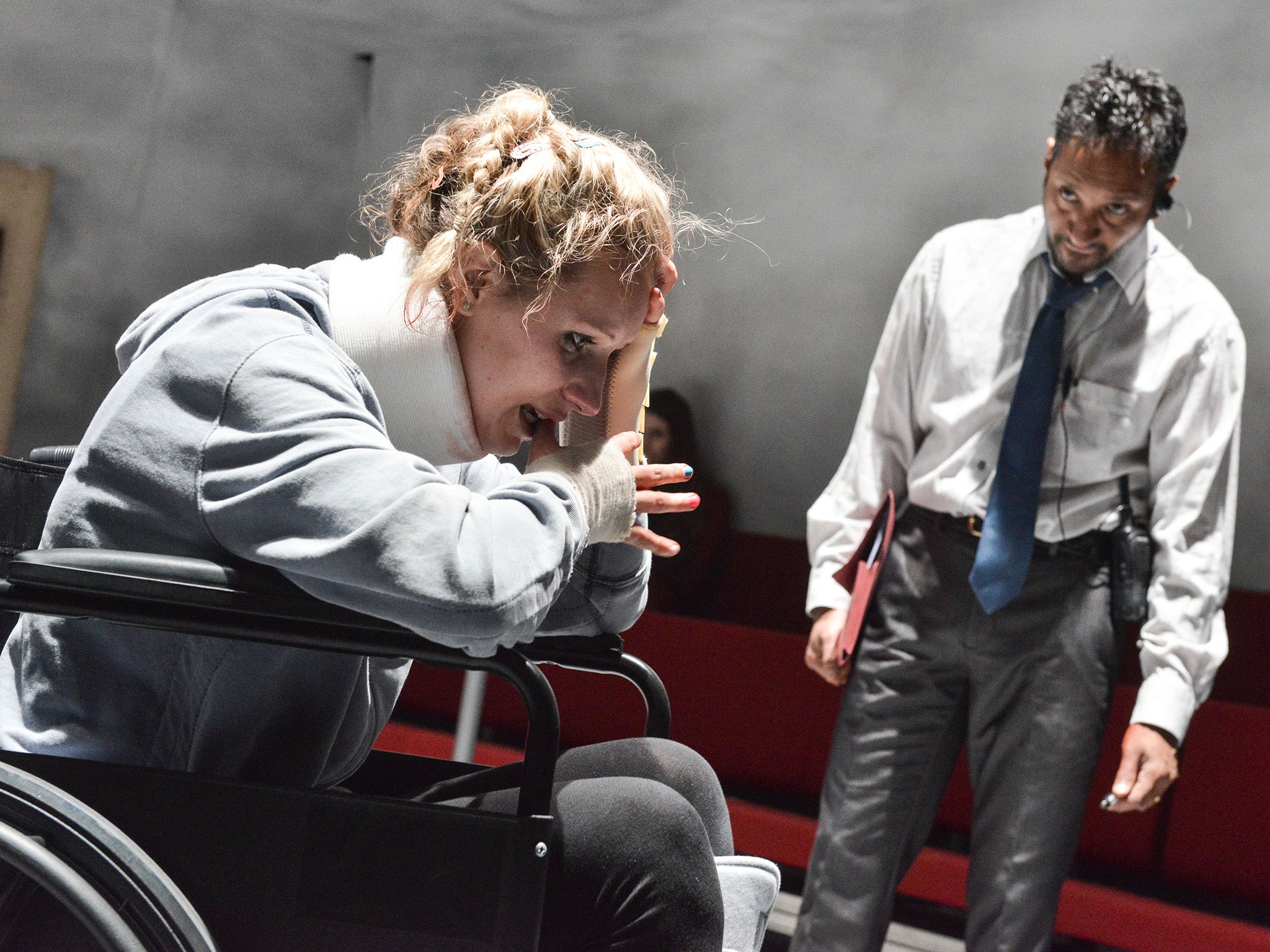Firebird, Trafalgar Studios 2, theatre review: The class politics at play in neglect of white working class girls
The play about Rochdale child sex rings leaves us with just a smidgen of hope that the protagonist will rise from the ashes

Your support helps us to tell the story
From reproductive rights to climate change to Big Tech, The Independent is on the ground when the story is developing. Whether it's investigating the financials of Elon Musk's pro-Trump PAC or producing our latest documentary, 'The A Word', which shines a light on the American women fighting for reproductive rights, we know how important it is to parse out the facts from the messaging.
At such a critical moment in US history, we need reporters on the ground. Your donation allows us to keep sending journalists to speak to both sides of the story.
The Independent is trusted by Americans across the entire political spectrum. And unlike many other quality news outlets, we choose not to lock Americans out of our reporting and analysis with paywalls. We believe quality journalism should be available to everyone, paid for by those who can afford it.
Your support makes all the difference.There's a risk that staging a play about the Rochdale child sex rings could descend into voyeuristic rehashing of real-life horrors. Luckily, Phil Davies has, in his debut play, written a teenager called Tia who is three-dimensional; yes, she’s a victim, but there’s heart and humour here too. And in just-outta-drama-school Callie Cook, he’s found a young actress who can scorch through this harrowing material, while leaving us with just a smidgen of hope that Tia will rise again from the ashes.
Edward Hall’s 75-minute production – transferring from Hampstead Downstairs – has break-neck pace, as Tia leaps from bolshy teen to be being utterly dependent on AJ, the older Asian man who tempts her with gifts and the promise of escape. A scene of blood-spattered confrontation between Tia and AJ makes for gruesomely painful viewing.
That the same actor, Phadlut Sharma, also plays a useless, callous policeman is a brilliantly nasty bit of double-casting, allowing us to see men the way Tia does: they’re all the same, all reneging on their promises to protect her. Subtly revealing Tia’s poverty, Davies also reminds us of the class politics at play in the real-life neglect of troubled white working class girls.
Join our commenting forum
Join thought-provoking conversations, follow other Independent readers and see their replies
0Comments